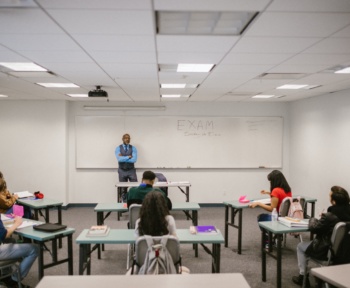HARLINGEN, Texas — U.S. authorities have once again expanded the availability of asylum slots through a mobile app at land crossings with Mexico, in an effort to demonstrate its viability. This is the second expansion in less than a month.
There are now 1,250 appointments available daily at eight land crossings, an increase from the previous 1,000 slots and the 740 slots offered in early May.
Blas Nuñez-Neto, the assistant secretary for border and immigration policy at the Department of Homeland Security, stated that the increase reflects their commitment to expanding legal options for migrants. He emphasized that they will continue to expand the number of appointments based on operational capacity.
Nuñez-Neto referred to the CBP One mobile app as a safe and orderly option during his visit to Harlingen, Texas. This expansion comes shortly after the state of Texas filed a lawsuit to terminate what it considers an illegal method of facilitating immigration.
However, the demand for asylum appointments has far exceeded the supply since the program’s inception on January 12, leading many to consider illegal border crossings or give up entirely. Enrique Lucero, the migrant affairs director for the city of Tijuana, stated that the latest increase would have minimal impact given the large number of people still waiting.
Following the lifting of pandemic-related asylum restrictions on May 11, the Biden administration has continued to adopt a carrot-and-stick approach to immigration at the border. They introduced a general ban on asylum for individuals who travel through other countries, such as Mexico, and enter the U.S. illegally.
U.S. authorities are attempting to direct people to legal pathways, including CBP One and parole for up to 30,000 individuals from Cuba, Haiti, Nicaragua, and Venezuela. These individuals can apply online with a financial sponsor and arrive by air.
CBP One is available to people of any nationality who apply from central and northern Mexico and enter the U.S. by land.
The expansion of the program on Thursday received a cautiously optimistic and mildly indifferent response from some of the approximately 150 people, mostly families with young children, who are camped on a sidewalk at a border crossing between Tijuana and San Diego. They are hoping that U.S. officials will admit them without requiring a CBP One appointment.
According to reports, authorities have been allowing approximately one family to enter every few hours, leading to a growing bottleneck over the past week as news of this alternative spread.
Carlos Vasquez, a 25-year-old Honduran, arrived in southern Mexico from Honduras in January with his pregnant wife and 4-year-old daughter. He began trying to secure an appointment through the CBP One app once he reached central Mexico. Frustrated by his unsuccessful attempts, he started sleeping at the border camp on Monday, hoping that U.S. officials would show compassion to his family.
Vasquez acknowledged that the increase to 1,250 appointments per day was good news but not enough to make a significant impact. He stated, “We are many, and there are few chosen.”
Sergio Hernandez, a 35-year-old Guatemalan who plans to seek asylum while staying with a childhood friend in Kansas City, Missouri, managed to secure an appointment on May 24 after more than five months of daily efforts. The appointments are currently scheduled up to two weeks in advance.
Hernandez, who is traveling alone, mentioned that he encountered numerous “system error” messages before finally confirming a slot. There was one instance where he received a date on his phone screen but never received an email confirmation.
He remarked, “They keep improving it little by little.”
Hernandez also noted a perception that larger families are at a disadvantage, although U.S. officials deny this claim.
Beatriz Melchor, a 47-year-old asylum seeker, expressed her intention to wait and observe the impact of the latest increase. She, along with her husband and son, has been using the app for about six weeks but has not noticed any significant improvements despite the changes announced in early May. These changes included giving higher priority to those who have been trying the app for a longer duration and making appointments available throughout the day instead of all at once, which caused chaotic rushes.
Melchor explained that returning to her hometown in the Mexican state of Guerrero was not an option due to criminal activities blocking exits and entrances. If the mobile app does not work for her, she is prepared to wait, although she acknowledged concerns about safety in Tijuana.

